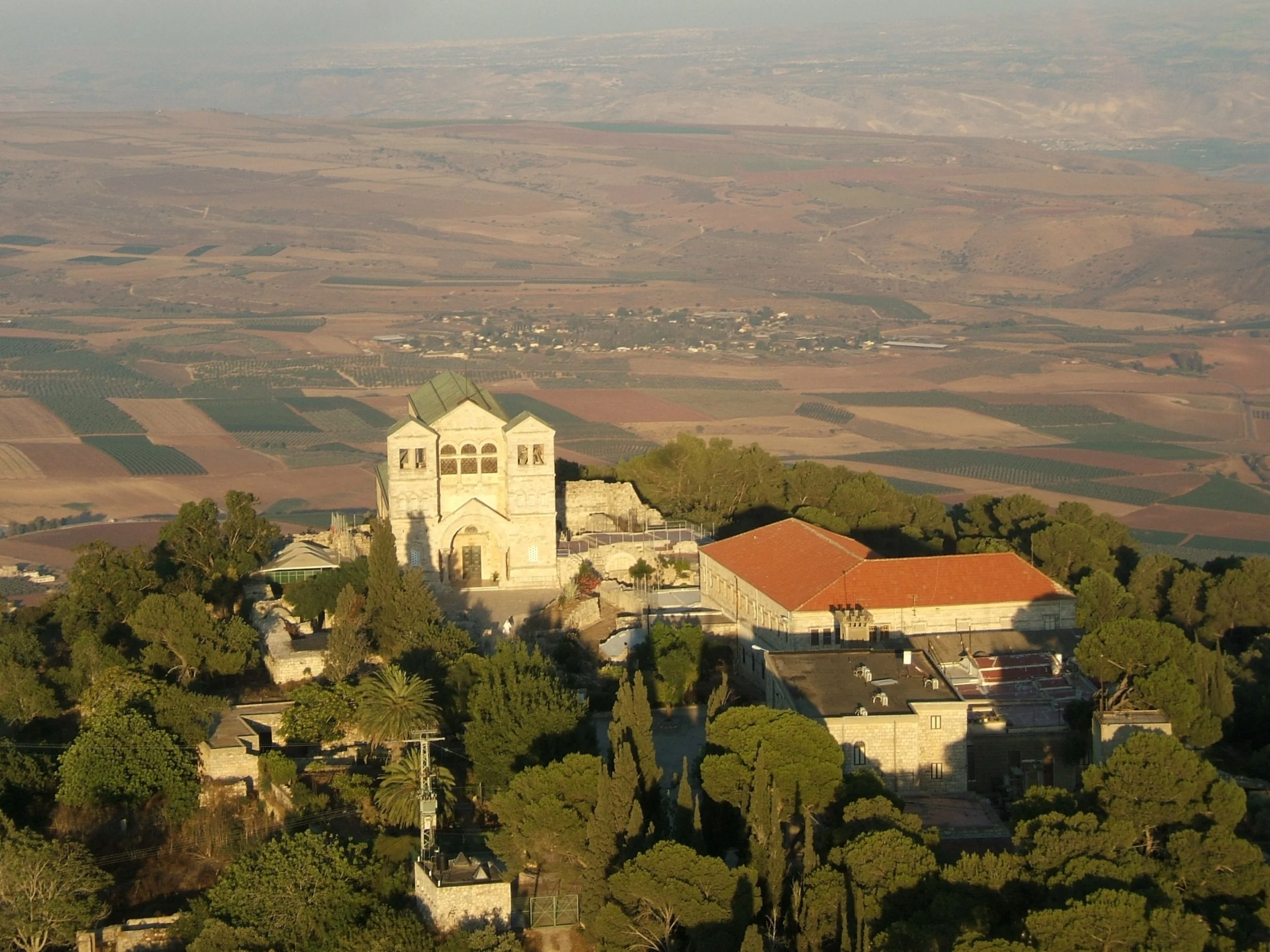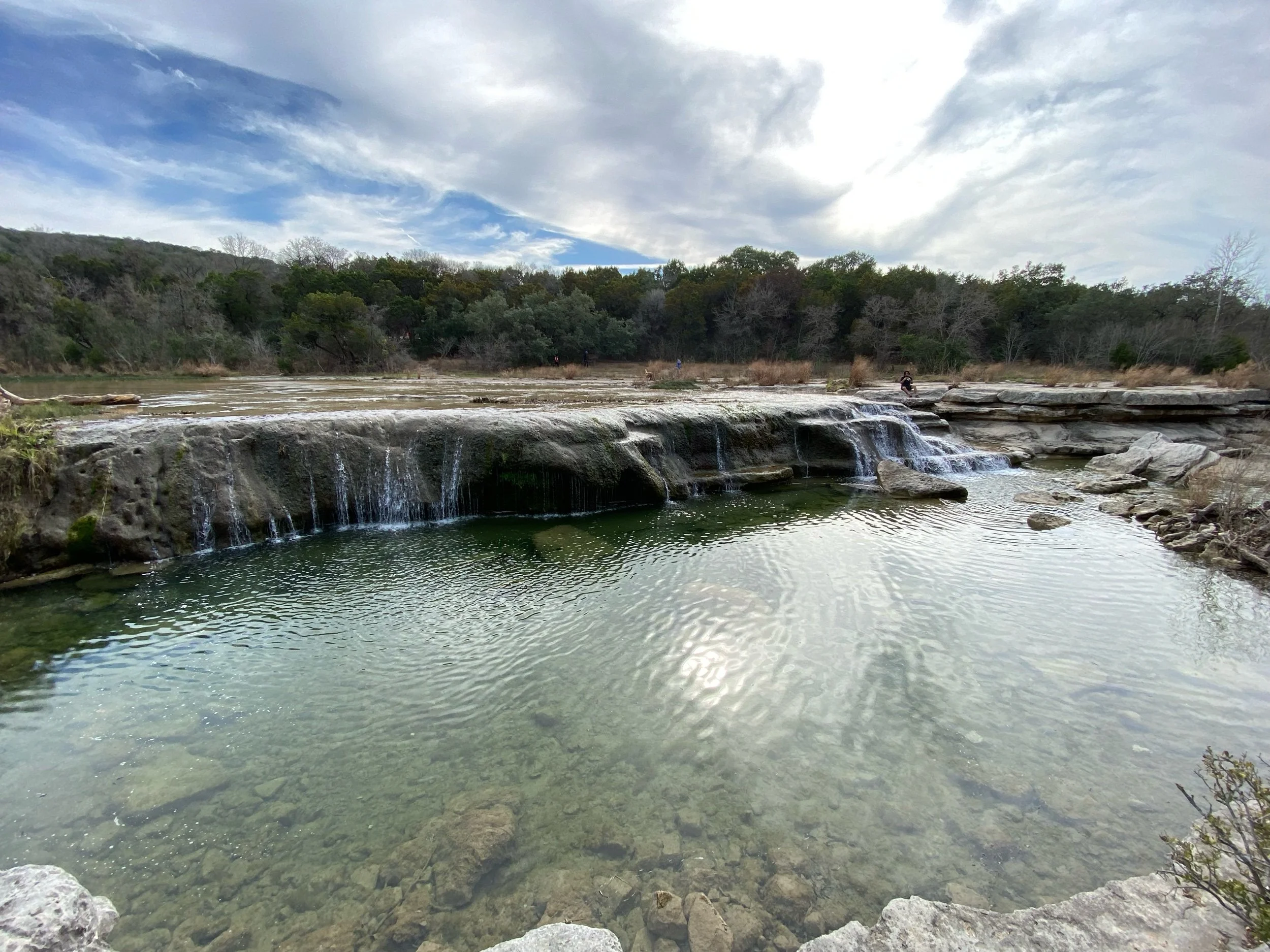Remember Consolation
I think I’ve decided that my favorite day of the week is Saturday. Can you guess why? Because after abstaining from meat all Friday, the burger or fajita meat on Saturday tastes so much better. In fact, sometimes when I fast and sacrifice on Friday, I remind myself that Saturday will eventually come. Sometimes the reality of Saturday helps me get through a Friday fast.
Today, Jesus wants to give the disciples something to help them through their Friday sufferings. Jesus leads his three closest disciples, Peter, James and John, up the mountain and reveals to them His transfiguration. He shows them His glory and beauty, He reveals to them his divinity. Now it’s not like Jesus somehow received more glory or more beauty at the transfiguration, because he was already fully God and fully man, (in Jesus already contained infinite beauty and glory)… but what happened at the Transfiguration was that for the first time the sight of three “blind” men, Peter, James and John were opened and awaken for a moment to the truth and reality of Jesus’ divinity. They are overwhelmed by this event and it is so engrained in their minds that Peter would later write about it in his letter saying:
“[Brothers and sisters,] We did not follow cleverly devised myths when we made known to you the power and coming of our Lord Jesus Christ, but we had been eyewitnesses of his majesty. For he received honor and glory from God the Father when that unique declaration came to him from the majestic glory, “This is my Son, my beloved, with whom I am well pleased.” We ourselves heard this voice come from heaven while we were with him on the holy mountain. Moreover, we possess the prophetic message that is altogether reliable. You will do well to be attentive to it, as to a lamp shining in a dark place, until day dawns and the morning star rises in your hearts.”
But the question remains, why does Jesus do this? Why take up these three up the mountain? Why show them this vision of the transfiguration?
Well you have to read the passages that come before and after this. Right before this and right after, Jesus tells his disciples: “The Son of Man must suffer greatly and be rejected by the elders, the chief prisets, and the scribes, and be killed and on the third day be raised.” Then he says to them, “If anyone wishes to come after me, he must deny himself and take up his cross daily and follow me.”
At this point, Jesus has set his sights on Jerusalem, on the Cross. He knew what laid before him, He knew what laid before his disciples who followed him. The road ahead was not going to be easy. It was because of this, that Jesus gave Peter, James and John this experience of his majestic glory.
You see, Jesus was preparing the disciples for Friday, Good Friday. He was preparing them for the scandal of the Cross. The Messiah was not going to somehow raise up an army and wipe out all evil in the world… instead he was going to defeat evil, but embracing suffering and death on a Cross. This is shocking and Jesus knew it would be shocking for his disciples. He wanted them not to fall into complete despair and desolation at the crucifixion. He wanted to strengthen them for the this suffering and trial. He wanted them to know that after Good Friday, eventually Easter Sunday would come. That the bright light of glory will dispel even the darkest of the nights.
Brothers and sisters, this is why every Second Sunday of Lent, the Church gives us an account of the Transfiguration.
We all have begun our lenten journey, and maybe for some it’s going really well (your Lenten practices are going smoothly, you’re feeling blessed and there’s a greater peace and freedom in your life because you know God’s grace is there)… but for others perhaps we are already getting discouraged and defeated with our Lent… perhaps we have already failed at our Lenten disciplines already and it’s only been a week and a half since Lent started! Maybe it seems like for some reason the Cross in your life are multiplying and the weight of it is started to be difficult. If so, then you too, like the disciples, need the Transfiguration.
You know, one of the many experiences people have when they begin to turn back to God, when they begin to pray more and go to Mass more and start to change their life, is that at first it’s beautiful! You have so much peace, you can feel God’s love, you heart is burning in you, your mind is clear. You are excited about the way things are looking. And you want to just have God more in your life in every way.
But then it happens. It always happens… Maybe it’s the next day, maybe it’s a week or a month later… but sooner or later it happens… And on that day, you come to prayer and there’s nothing. It’s dry. You feel no love, you’re anxious, your mind is racing and you can’t slow down. Are you even praying anymore? Was what you experienced before real? Is God even real? You begin to feel like you are a complete failure and discouragement takes over. You feel empty and abandoned by God, God no longer feels near and you feel like you are losing your faith. And the temptation of the enemy is to just give up and leave it all behind. If I don’t feel anything then it must not matter.
St. Ignatius of Loyola in his Spiritual Exercises calls these experiences “spiritual desolation”.
And He states that when you are experiencing such trials, it is important to recognize it AND to know how to respond. This is what St. Ignaitus says about Spiritual desolation: “Desolation is all the contrary of [consolation], such as darkness of soul, disturbance in it, movement to low and earthly things, disquiet from various agitations and temptations, moving to lack of confidence, without hope, without love, finding oneself totally slothful, tepid, sad, and, as if separated from one’s Creator and Lord.”
On the contrary, St. Ignatius calls experiences that are opposite consolation: “Consolation is when some interior movement is caused in the soul, through which the soul comes to be inflamed with love of its Creator and Lord, and consequently when it can love no created thing on the face of the earth in itself, but only in the Creator of them all. Likewise when it sheds tears that move to love of its Lord, whether out of sorrow for one’s sins, or for the passion of Christ our Lord, or because of other things directly ordered to his service and praise. Finally, consolation is every increase of hope, faith, and charity, and all interior joy that calls and attracts to heavenly things and to the salvation of one’s soul, quieting it and giving it peace in its Creator and Lord.”
Consolation is a gift of the Holy Spirit, who gives “courage and strength, consolations, tears, inspirations, and peace. This he does by making all easy, by removing all obstacles so that the soul goes forward in doing good”
Desolation is the opposite. It is caused by the evil spirit who is apt to “harass with anxiety, to afflict with sadness, to raise obstacles backed by deceptive reasonings that disturb the soul. Thus, he seeks to prevent the soul from advancing” (#315).
Now note that these experiences are caused by outside forces greater than us. And, note that most saints experienced BOTH consolation AND desolation. Consolation and desolation are natural aspects of the spiritual life and are common to all who strive for holiness.
One way to understand consolation and desolation is if we look at the root of each word. Con-solar means "with the sun"; De-solar means "away from the sun". When we sit in the sunlight we tend to feel warm, joyful, peaceful, even loved. When clouds move in and cover the sun, we tend to feel cold, uneasy, sad, even lonely. Did I do something wrong that made the sun stop shining? No, in fact the sun never stops shining. It just that we just can't always feel it.
In a very similar way, God is always pouring out His love into us. And he never stops giving his love and grace to us. Sometimes we feel it in a powerful way and sometimes we don't feel it at all. And God allows us to feel desolation because he loves us. If we only love God because it makes us feel good, is that truly love? Do we love the feeling or do we love God? God wants our love to be true, and that means we have to love unconditionally. Not only when it feels good.
But being in desolation isn’t easy. And sometimes desolation can feel like a cross. But even when there have been hurricanes and storms and cloudy days for weeks, there is a reminder that eventualy the Sun will come out. That even when things look dark and the disciples are looking at their friend crucified on the cross, the Transfiguration reminds us that it is not the end. Good Friday will eventually become Easter Sunday.
So what do you do if you’re feeling desolation?
· Don't make a change. Stick to what you had already planned or decided in consolation, for the Enemy provides plenty of suggestions and guidance during desolation, all of which are harmful to us. Carry through on the plans and resolutions you made when in consolation. Don’t give up your lenten practices, but stick to it at least until consolation returns.
· Insist more upon prayer and mediation. Though your prayer may not seem fruitful, trust in your relationship wth God and do not look elsewhere for satisfaction. Like radiation, maybe you don’t feel it but God’s presence is changing you.
· Be patient, knowing that consolation will inevitably return. God never leaves the soul without sufficient grace to follow Him faithfully and obtain salvation.
Brothers and sisters, as we go through the next weeks of Lent, if you start to experience desolation, remember the Transfiguration, remember Jesus’ love for us, remember how he came to be with us and to show us his love, and remember that we are saved not only through the cross, but through the cross and resurrection of Jesus Christ.
May the glory of his love, be a light of hope for you in desolation.






